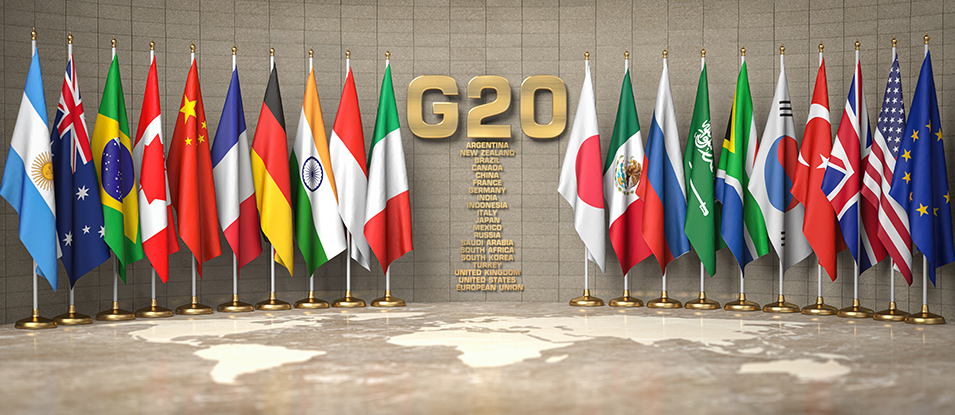We are in the midst of a massive global shift in the way work is done, manifested as the ‘future of work’ powered by IR 4.0, energy transition, and new age technologies. These new technologies are bringing changes at the ‘work’, ‘workplace’ and the ‘workforce’ level. We are witnessing a paradigm shift in the composition of employment across sectors, marked by the advent of new jobs requiring high-level cognition and socio-emotional skills. There is a fair degree of optimism and scepticism across all socioeconomic spheres to adjust to the ‘future of work’.
Global transformations of this magnitude require in-depth deliberations and the G20, representing 85% of global GDP and two-third of the global population, is the right forum to discuss the ‘future of work’ with all its economic and social dimensions. The G20 which can come up with a framework, for harnessing technology for global good, with complementary strengths of nations, to manage the trends emanating from the ‘future of work’. India’s G20 Presidency has placed the G20 skills strategy, and its related aspects of building capacity, lifelong learning, and monitoring, as a significant component of the discussions, thus bringing relevance of these deliberations for the entire world. It provides an opportunity to the G20 and indeed to the world to embrace the task of reimagining educational and training systems to equip learners with the necessary skills for navigating life, contributing to society, and thriving in emerging job markets.
Some of the key manifestation of the ‘future of work’ is visible in terms of the rapid technological disruption around us, through automation, Big Data, AI, and other technologies. While this has enabled exponential growth in productivity, on the flip side, it has raised the questions of the scope, size, and inclusion of the job market in the future. Demographic divergence across the world with some leading economies projected to see working age population of less than 25% by 2050 is raising alarm. The Education and Labour Working Group deliberations under G20 have indeed marked significant progress in certain areas, including indicators for implementing the collective G20 skills strategy and ways to improve education and learning outcomes across the continuum of learning at school and in TVET.
The National Education Policy (NEP) 2020 provides an overarching framework for integration of skills and vocational education at all levels, through mechanisms like seamless credit accumulation and transfers, pathways from vocational to general education and vice-versa and integration of delivery of skills across the education and skill infrastructure spread across various Ministries/ Departments/ States. It aims at making learning more practice oriented, wholesome, and to enhance employability. It also envisages that our education and skill institutions are able to prepare individuals who are resilient and adaptable to change in the economy and the job market.
Preparing the workforce for the ‘future of work’ is a multidimensional and multi-stakeholder responsibility. In addition to domain and soft skills, the education-skilling ecosystem must instil the skills of creativity, problem solving and analytical thinking into students, to prepare them for the new age economy. We also see, more than ever, the need for dynamic skill assessment and anticipation across both manufacturing and services sectors as automation leads to changes in the shop floor and ways of customer engagement. The skilling infrastructure would also need to be upgraded from memorization and theory to understanding the connected world with greater focus on transferable employability skills. We must also continue the capacitation of implementation partners across the local/district, state, and national level stakeholders to equip them with the necessary skills and motivation to implement this transformation in letter and spirit. Along with technologies, the ‘future of work’ also needs a renewed effort to build inclusion and address social challenges like the participation of women in the labour force, access of skilling to the disadvantaged sections/geographies and helping sections which find mainstreaming with the new economy difficult.
As the global South led by India undertakes the necessary reforms to upgrade its education-skills systems for the future of work, it automatically opens an array of complementary opportunities of collaboration and mobility between various countries under G20 which face contrasting demographic and economic challenges.
(The Author is Secretary, Ministry of Skill Development and Entrepreneurship)








